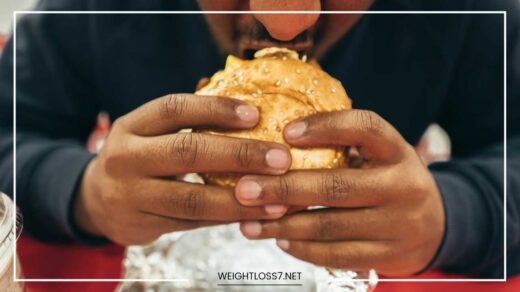I Need Help Losing Weight
I Need Help Losing Weight: Acknowledging the Struggle and Navigating the Path Forward
The words echo in the quiet of your mind, or perhaps they are a whispered confession shared with a trusted friend, or even a hesitant online search query: “I need help losing weight.” It’s a phrase loaded with more than just a desire for a smaller number on the scale.
It carries the weight of past attempts, frustration, confusion, maybe even shame, and a profound feeling of being stuck.
It’s an admission that the do-it-yourself approach, for whatever reason, hasn’t yielded sustainable results, and a recognition that navigating the complex world of health, nutrition, and fitness feels overwhelming.
If these words resonate with you, you are far from alone. Millions of people around the world grapple with their weight, and the journey to a healthier body can feel like an uphill battle with no clear map.
Acknowledging that you need help is not a sign of weakness; it is, in fact, a tremendous act of strength, self-awareness, and courage.
It’s the crucial first step in opening yourself up to new possibilities, new strategies, and the support systems that can make a genuine difference.
This isn’t another article offering generic diet tips or exercise routines. You’ve likely read countless of those.
This is an exploration of why you might feel you need help, what kinds of help are available, and how to identify the right path for you.
It’s about shifting from feeling overwhelmed and alone to feeling empowered and supported on your journey toward a healthier self.
Why Do I Feel Like I Need Help? Unpacking the Layers
Before seeking help, it’s powerful to understand why you feel the need for external support. Pinpointing the root causes of your struggle can guide you toward the most effective types of assistance. Here are some common reasons people reach this pivotal point:
-
Information Overload and Confusion: The internet is a vast ocean of conflicting advice. Low-carb, low-fat, intermittent fasting, keto, paleo, vegan, intuitive eating, calorie counting, macro tracking, HIIT, steady-state cardio, strength training… It’s enough to make your head spin. When every expert seems to contradict another, and every click reveals a new “miracle” solution, it’s easy to feel paralyzed and unsure of where to even begin, or worse, to jump from one fad to another without sustainable progress. You need help cutting through the noise and finding evidence-based strategies that fit your life.
-
Past Failures and Frustration: You’ve tried before, perhaps many times. You’ve lost weight only to regain it, or you saw minimal results despite significant effort. These experiences can be deeply discouraging and erode your confidence. You start to believe that you are the problem, that you lack willpower or discipline. This cycle of try-fail-feel bad creates a psychological barrier. You need help overcoming the emotional baggage of past attempts and building a more positive, resilient mindset.
-
Emotional Eating and Your Relationship with Food: For many, food is more than just fuel. It’s a source of comfort, a way to cope with stress, boredom, sadness, or even happiness. Emotional eating can sabotage the best-laid plans. Understanding why you eat, recognizing your triggers, and developing healthier coping mechanisms requires introspection and often, external guidance. You need help addressing the psychological connection between your emotions and your eating habits.
-
Lack of Knowledge or Skills: You might know you need to eat healthier and move more, but lack the practical knowledge. What constitutes a balanced meal? How do you grocery shop effectively? How do you cook healthy meals that taste good? What exercises are right for your fitness level and goals? How do you fit it all into a busy schedule? You need help acquiring the practical skills and knowledge to translate general advice into daily actions.
-
Lack of Motivation, Accountability, or Consistency: Starting is one thing; staying consistent is another. Life happens – stress, travel, illness, busy periods – and it’s easy to fall off track. Maintaining motivation can be challenging, especially when results are slow. You might struggle with self-discipline or find it hard to hold yourself accountable. You need help staying motivated, building consistent habits, and having someone (or something) to check in with.
-
Underlying Medical or Psychological Factors: Sometimes, weight gain or difficulty losing weight can be linked to underlying medical conditions (like hypothyroidism, PCOS, or certain medications) or psychological issues (like depression, anxiety, or undiagnosed eating disorders). Ignoring these factors makes sustainable weight loss nearly impossible. You need help identifying if there are deeper issues at play that require professional medical or psychological intervention.
-
Environmental Challenges: Your environment plays a significant role. Do you work in a sedentary job? Is your home filled with tempting processed foods? Do your social gatherings revolve around unhealthy meals and drinks? Do you live in an area with limited access to safe places to exercise or healthy food options? Navigating these external pressures can be difficult alone. You need help strategizing how to create a supportive environment that makes healthy choices easier.
Acknowledging these potential reasons is not about making excuses, but about gaining clarity. It helps you see that the struggle isn’t necessarily a personal failing, but a complex interplay of factors that often require more than just willpower.
What Kind of Help is Available? Mapping Your Needs to Resources
Once you have a better understanding of why you feel you need help, you can begin to explore the various avenues of support available.
Think about your primary roadblocks: Is it lack of knowledge? Lack of motivation? Emotional eating? Medical issues? This will help you determine where to focus your search.
Here’s a breakdown of different types of help and where you might find them:
1. Help with Knowledge and Education:
- What it provides: Clear, evidence-based information on nutrition, exercise principles, healthy cooking, reading food labels, understanding macronutrients and micronutrients, and planning meals.
- Who it’s for: Anyone who feels confused by conflicting information or lacks foundational knowledge about healthy eating and exercise.
- Where to find it:
- Registered Dietitians (RDs) / Registered Nutritionists: These are credentialed professionals who can provide personalized nutrition counseling based on your individual needs, health status, and goals. They can help you create a sustainable eating plan, understand portion sizes, manage cravings, and address specific dietary concerns (like vegetarianism, allergies, etc.). Look for proper credentials and licensing.
- Certified Personal Trainers: While primarily focused on exercise, good personal trainers also have a strong understanding of basic nutrition and how it complements physical activity. They can design safe and effective workout programs tailored to your fitness level and goals, teach proper form, and help you build strength and endurance. Look for certifications from reputable organizations.
- Reputable Websites, Blogs, and Books: Be discerning! Look for sources backed by science, written by qualified professionals (RDs, researchers, medical doctors), and free from sensationalized claims or promises of rapid weight loss. Organizations like the National Institutes of Health (NIH), the Centers for Disease Control and Prevention (CDC), and established professional bodies often provide reliable information.
- University Extension Programs or Community Classes: Some local universities or community centers offer affordable classes on nutrition, healthy cooking, or exercise.
2. Help with Planning and Structure:
- What it provides: Assistance in setting realistic goals, creating structured meal plans, developing exercise schedules, tracking progress, and building consistent routines.
- Who it’s for: Those who struggle with organization, consistency, or translating knowledge into a practical, daily plan.
- Where to find it:
- Registered Dietitians and Personal Trainers: They excel at creating personalized plans. A dietitian can help you build a sustainable meal plan that fits your preferences and lifestyle, while a personal trainer can structure your workout routine.
- Weight Loss Programs and Clinics: Many structured programs (like WeightWatchers, Jenny Craig, or medical weight loss clinics) provide pre-designed meal plans, exercise suggestions, and a framework to follow. They often offer support groups and regular check-ins.
- Weight Loss Apps and Software: Apps like MyFitnessPal, Lose It!, or Noom offer tools for tracking food intake and exercise, setting goals, and providing structure through logging and progress visualization. Some offer meal planning features or guided programs.
- Health Coaches: Some health coaches specialize in behavior change and can help you set goals, create action plans, and develop strategies for overcoming obstacles and building habits. Verify their training and credentials.
3. Help with Accountability and Support:
- What it provides: Encouragement, regular check-ins, a sense of community, shared experiences, and motivation to stay on track, especially during challenging moments.
- Who it’s for: Those who find it difficult to stay motivated or consistent when working alone, who benefit from external encouragement, or who feel isolated in their journey.
- Where to find it:
- Support Groups (Online and In-Person): Weight loss support groups offer a safe space to share struggles and successes, get advice from peers, and feel understood. Organizations like Overeaters Anonymous or local hospital programs often run such groups. Online forums and social media groups dedicated to weight loss can also provide a sense of community.
- Accountability Buddies: Partnering with a friend, family member, or colleague who also has health goals can provide mutual support and accountability. Check in regularly, share your progress (or lack thereof), and encourage each other.
- Weight Loss Programs with Coaching/Group Sessions: Programs like WW or Noom often include group meetings or one-on-one coaching, which provide structure and accountability.
- Personal Trainers and Dietitians: Regular appointments with these professionals inherently provide accountability and a consistent touchpoint for progress review and adjustment.
4. Help with Mindset and Emotional Support:
- What it provides: Strategies for managing emotional eating, improving body image, developing self-compassion, addressing underlying psychological factors contributing to weight struggles, and building a positive relationship with food and your body.
- Who it’s for: Individuals who struggle with emotional eating, poor body image, low self-esteem related to weight, or suspect underlying psychological issues are impacting their ability to lose weight.
- Where to find it:
- Therapists or Counselors (specializing in eating disorders, body image, or health psychology): A mental health professional can help you explore the emotional roots of your eating habits, develop coping strategies for stress and difficult emotions that don’t involve food, and address issues like depression or anxiety that can impact motivation and behavior.
- Health Coaches: As mentioned earlier, some health coaches focus heavily on mindset and behavior change.
- Mindfulness and Meditation Practices: Learning mindfulness can help you become more aware of your hunger and fullness cues and recognize emotional eating triggers. Apps and guided meditations can be helpful resources.
- Books and Resources on Mindful Eating and Body Image: Many excellent resources can help you shift your perspective on food and your body.
5. Medical and Specialized Help:
- What it provides: Assessment for underlying medical conditions, discussion of medication side effects, referral to specialists, and consideration of medical interventions if appropriate and necessary.
- Who it’s for: Anyone with existing health conditions, those taking medications that affect weight, or individuals with significant obesity for whom traditional methods have not been effective.
- Where to find it:
- Your Primary Care Physician: Your doctor is a crucial starting point. They can assess your overall health, check for underlying medical issues, discuss your weight loss goals in the context of your health history, and refer you to specialists (like endocrinologists or bariatric surgeons) if needed.
- Endocrinologists: These specialists deal with hormone imbalances that can affect weight.
- Bariatric Surgeons: For individuals with severe obesity, surgical options may be considered as part of a comprehensive treatment plan, typically involving significant pre- and post-operative support.
Putting It All Together: Choosing Your Path
Feeling overwhelmed by the options? That’s okay. The key is not to try and utilize every resource at once, but to identify the most critical areas where you need support right now.
-
Self-Assessment: Take some time to honestly reflect on the “Why Do I Feel Like I Need Help?” section. Which reasons resonate most strongly with you? Is it primarily a knowledge gap? A struggle with consistency? Emotional eating? A suspicion of a medical issue?
-
Prioritize Your Needs: Based on your self-assessment, which types of help seem most relevant? If you’re utterly confused about what to eat, starting with a Registered Dietitian might be a good first step. If you struggle with binge eating, a therapist specializing in eating disorders could be essential. If you lack motivation and structure, a personal trainer or a structured weight loss program might be beneficial.
-
Start Small: You don’t need to overhaul your entire life overnight or hire a team of professionals. Choose one or two areas to focus on initially. Perhaps start by seeking out reliable online resources to build foundational knowledge, or join a support group for accountability. As you gain momentum and clarity, you can incorporate other forms of help if needed.
-
Consider Cost and Accessibility: Professional help often comes with a cost. Research what your insurance might cover (especially for RDs or therapists) and explore local resources. Community programs, online support groups, and reputable free resources can be excellent starting points if budget is a concern.
-
Don’t Be Afraid to Switch: If a particular type of help or a specific professional isn’t a good fit, it’s okay to try something else. Finding the right support system is a bit like dating – sometimes you need to meet a few different people or try a few different approaches before finding the one that clicks for you.
-
Think Long-Term, Not Just Weight Loss: The most effective help will focus on sustainable lifestyle changes, not just quick fixes. Look for resources that emphasize building healthy habits, improving your relationship with food and exercise, and focusing on overall well-being, not just the number on the scale. Help that only focuses on restricting calories or extreme exercise is unlikely to lead to lasting success.
-
Embrace the Journey, Not Just the Destination: Losing weight and maintaining it is a process with ups and downs. There will be plateaus, setbacks, and moments of frustration. Having help means having support to navigate these challenges, learn from them, and keep moving forward. Focus on progress, not perfection. Celebrate small victories along the way.
The Power of Seeking Help
Saying “I need help losing weight” is a powerful declaration. It signifies a shift from struggling in isolation to actively seeking solutions. It opens the door to:
- Expert Guidance: Access to professionals who can provide personalized, evidence-based strategies.
- Accountability: Having external support to stay on track and committed to your goals.
- Emotional Support: Addressing the psychological and emotional aspects of weight that are often overlooked.
- Reduced Overwhelm: Breaking down the seemingly insurmountable task into manageable steps with guidance.
- Sustainable Change: Learning habits and strategies that can be maintained long after the weight is lost.
- Increased Self-Compassion: Shifting from self-blame to a more understanding and supportive approach to yourself.
- Hope: Rekindling optimism and belief that a healthier future is possible.
Your journey to a healthier weight and a healthier relationship with your body is deeply personal. It requires patience, persistence, and often, the right kind of support.
Acknowledging “I need help” is not the end of the road; it is the courageous first step onto a new, more promising path. Explore the options, be honest with yourself about your needs, and don’t hesitate to reach out.
The help you need is available, and taking that step is an investment in your health, your happiness, and your future. You don’t have to do this alone.


















